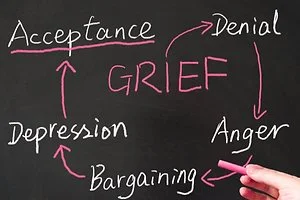Depression can be a hugely disabling issue. Millions of people suffer from it in varying degrees and anti-depressant prescriptions have doubled in just a decade. One of the most accurate and powerful videos that I have seen that gives an insight into Depression, is the “black dog” video which you can see below:
There is a lot of debate about whether depression is due to a chemical imbalance in the brain, genetic, things that happen in our lives, predisposed mood, lifestyle or a mixture of all of the above. It can also vary greatly in its severity and impact on day to day life. Some people may experience mild depression which could be similar to a constant low mood and some people experience severe depression which can lead to not being able to function day-to-day and may also lead to suicide.
Having worked with Depression a great deal as a Counsellor, I have seen many different forms and heard a huge range of ways that people deal with and get through such a harrowing battle. For some people, the more that they have explored their depression, they have realised that it is actually the cause of low self-worth or self-esteem. If we really detest ourselves then understandably, our mood and outlook on life will be drastically impacted by this. Given time to unpick what the depression actually is and what underlies its presence, we then have some chance to see it for what it really is and begin to find a way through it. Alternatively, some people develop ways to deal with the day to day struggle of depression. This could just be setting yourself tasks such as getting out of bed, brushing your teeth, having breakfast, and then as you find your way through these, there can be a sense of achievement and progress. For many people, these may be everyday activities that do not get a second thought but for someone battling depression, leaving your bed in the morning can feel like climbing Mount Everest.
Whatever your situation, I really do believe that there is a way through it. This may just be ways to find your way through each day, making life-changing decisions, taking some time to talk to someone else about your struggles or changing your lifestyle for the better. Mind give a great overview of depression, sources of help and other mental health issues. There is also a whole host of information out there to help inform you and help you on your road to understanding and recovery. If Counselling is not accessible for some reason then finding a friend or family member that you can confide in and talk to may be just as helpful. Equally, having time for and looking after yourself can be hugely beneficial. Overcoming such a debilitating illness can take time and be hard work but I have seen time and time again just how possible this can be with the right support. If you would like to ask any further questions about this post or any other issues then please feel free to get in touch.

